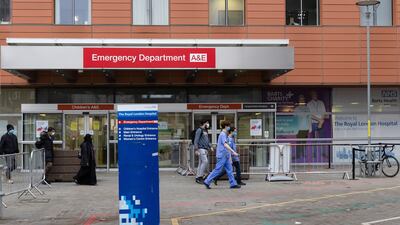The UK Health Security Agency has published new figures for the growth rate of coronavirus in England.
These are the first estimates since December 23 and include the R rate, or the virus's reproduction number.
The growth rate for infections is estimated to be between 3 and 6 per cent per day. The previous estimate was between 0 and 3 per cent.
Meanwhile, the R is estimated to be between 1.2 and 1.5, meaning every 10 people will infect between 12 and 15 people. The previous estimate was between 1 and 1.2.
But although these figures have only recently been published, because of the time it takes to assess how the virus is spreading, the numbers are merely a report on what was happening two or three weeks ago, the UKHSA says.
The report comes as health authorities on Friday reported the deaths of 229 people within 28 days of testing positive for Covid-19 as well as 178,250 lab-confirmed Covid-19 cases, the third straight day of decline.
A total of 179,756 cases and 231 deaths were reported on Thursday.
Separate figures published by the Office for National Statistics show there have now been 174,000 deaths registered in the UK where Covid-19 was mentioned on the death certificate.
A total of 18,454 people were in hospital in the UK with Covid-19 as of January 6, government figures show.
The UKHSA also released additional data on Friday revealing that booster shots are continuing to provide high levels of protection against severe disease from the Omicron coronavirus variant among older adults.
About three months after receiving a third shot, protection against hospital admission among those aged 65 and over remained at about 90 per cent, the UKHSA said.
“The data is highly encouraging and emphasises the value of a booster jab,” said Wei Shen Lim, chairman of Covid-19 immunisation on the government's Joint Committee on Vaccination and Immunisation.
“The current data show the booster dose is continuing to provide high levels of protection against severe disease, even for the most vulnerable older age groups,” he said.
He added that the findings show there is no current need for people to have a fourth shot, he added, but that this will continue to be reviewed.
Protection against mild symptomatic infection was more short lived than against severe disease and dropped to about 30 per cent after the three-month mark, the UKHSA said.















